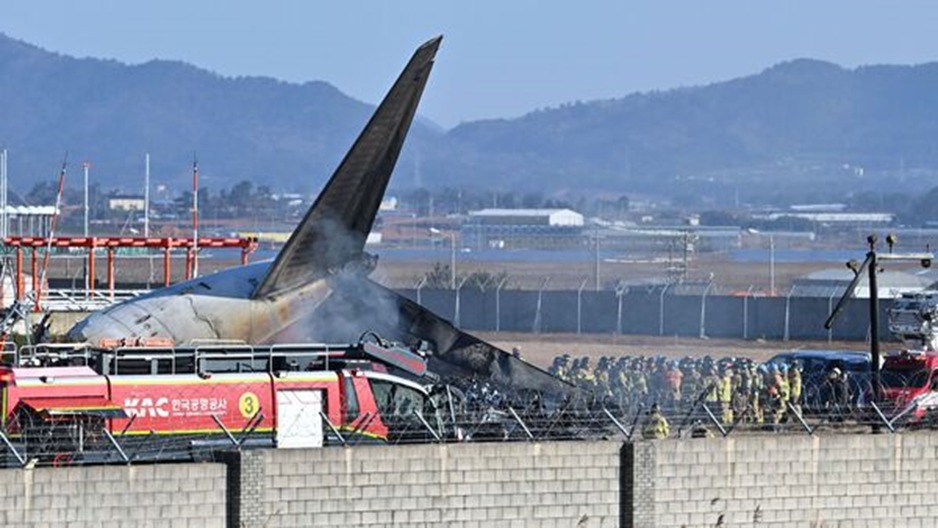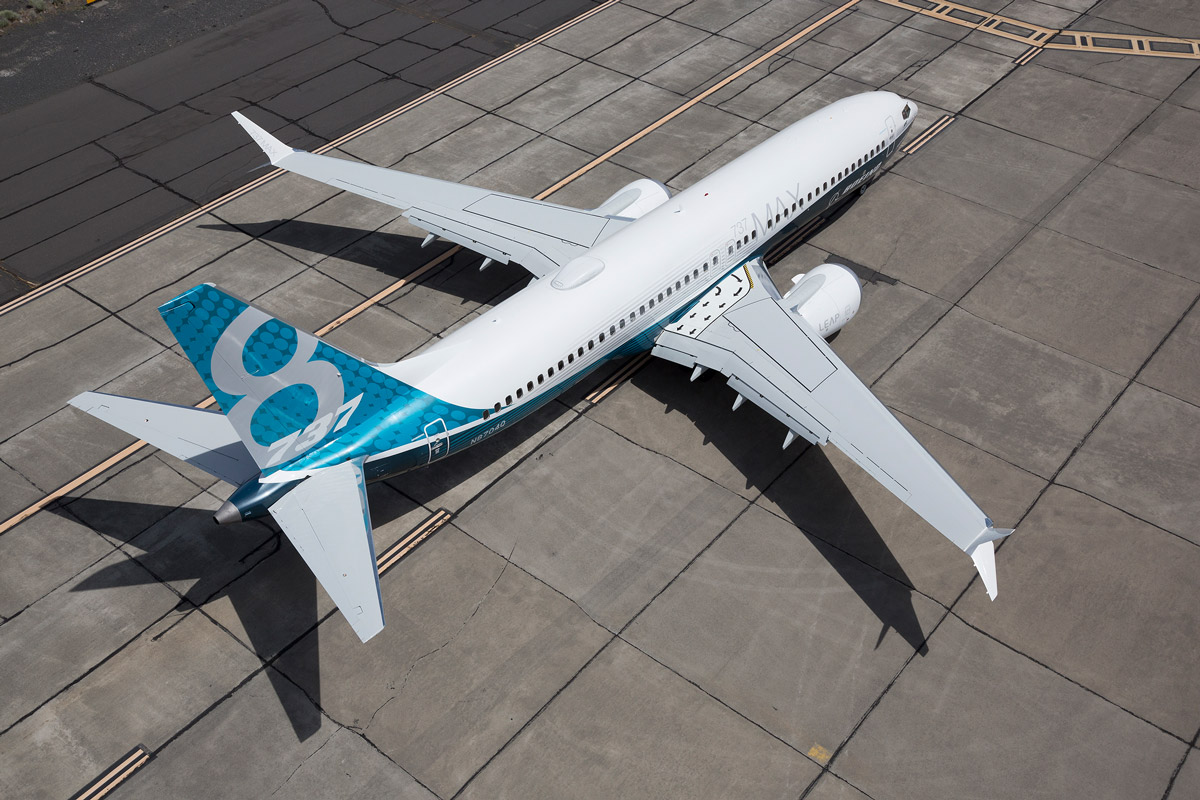Flying on a Boeing aircraft is a familiar experience for millions of flyers worldwide. Yet, recent events have cast a shadow of doubt over the safety reputation of the aviation giant following two separate accidents involving Boeing planes on the same day.
As 2024 draws to a close, Boeing faced a devastating blow on December 29, with two crashes occurring simultaneously—one in Torp, Norway, and the other in Muan, South Korea. The Muan crash tragically claimed over 180 lives, while the Torp incident, a belly landing, fortunately resulted in no injuries.
The year began on a similarly tragic note when, on January 5, Alaska Air Flight 1282 encountered a serious issue. While cruising at over 16,000 feet, a panel detached from the side of the Boeing 737 Max, leaving a massive, refrigerator-sized hole in the aircraft.
The National Transportation Safety Board’s investigation revealed that the panel, installed in place of an unused emergency exit, had not been properly secured. Luckily, passengers had not unbuckled their seat belts yet, preventing injuries.
This event was particularly alarming given that the Boeing 737 Max is the company’s newest and best-selling aircraft, with over 1,600 sold and nearly 4,800 on order. Yet, its safety record had already been under scrutiny before this incident.

Concerns were reignited in November when a Qantas Airways Boeing 737-800 en route to Brisbane experienced an engine failure shortly after takeoff. On November 8, passengers on board heard a loud bang as the aircraft circled briefly before returning safely to Sydney Airport. While engineers determined the failure to be “contained,” meaning internal engine parts remained within their housing, the event added another blemish to Boeing’s 2024 track record.
These alarming incidents have only deepened the growing concerns about the safety of Boeing’s fleet, and the company now faces renewed accusations of “prioritizing profits over safety.”
The echoes of past tragedies loom large, most notably the twin disasters of late 2018 and early 2019, when two Boeing 737 Max planes crashed—one off Indonesia and another shortly after takeoff in Ethiopia. Together, these crashes claimed 346 lives.

Investigations traced the cause to a flawed flight control software system designed to cut costs by avoiding extensive pilot retraining. Instead, the software malfunctioned, sending both planes into fatal dives. The fallout led to a 20-month global grounding of the 737 Max, during which regulators reviewed every aspect of its design.
Space Program Setbacks
Boeing’s troubles extend well beyond its commercial aviation sector, as its space ambitions are also facing serious hurdles.
In June, two astronauts were stranded on the International Space Station after Boeing’s Starliner spacecraft was found to have serious issues.
Gas leaks were discovered in the capsule’s propulsion system before launch, and upon arrival at the space station, the situation worsened. NASA made the difficult decision to keep astronauts Sunita Williams and Butch Wilmore on the station, deeming the Starliner too unsafe for their return to Earth.
The primary concern with the Starliner lies in its malfunctioning propulsion system, particularly the gas leaks and faulty thrusters. These issues highlight systemic concerns with the Starliner’s design and have prompted NASA to reassess the spacecraft’s viability for future crewed missions.
As Boeing grapples with mounting technical and reputational challenges, its role in America’s space program faces increasing scrutiny.
USAF vs PLAAF: U.S. “Downplays” China’s Air Combat Capability; Can 6th-Gen “J-36” Change The Game?
Whistleblower Exposes Factory Safety Lapses
Adding to Boeing’s woes, internal safety concerns have come to light. According to ‘The Federal Aviation Administration,’ it received over 200 reports from whistleblowers in the past year, raising concerns about Boeing’s safety practices, including mismanagement of parts, poor manufacturing, and inadequate inspections.
One of the most notable whistleblowers, Sam Mohawk, a 51-year-old quality assurance investigator at Boeing’s Renton factory, recently went public with his claims.
In an interview with 60 Minutes – an American television news magazine, Mohawk revealed that chaos following the COVID-19 pandemic had led to thousands of defective or substandard parts potentially being installed in aircraft.
Having worked for Boeing for 13 years on various programs, Mohawk claims he warned both the company and federal regulators about the lapses in safety protocols at the factory, which produces 30% of the world’s commercial jets.
Despite these claims, Boeing denied any safety issues, stating that there was “no evidence that the defective parts were installed on Boeing aircraft and none of the issues highlighted are safety-related.”
Interestingly, despite his public criticism of Boeing’s management, Mohawk continues to work at the company, underscoring the complex dynamics at play within the organization.
Admitting Guilt: Boeing’s Fraud Plea
Boeing’s credibility took another hit in July when the company agreed to plead guilty to conspiracy to commit fraud. The case centered on Boeing’s misleading disclosures to FAA regulators during the approval process for the 737 Max. Due to Boeing’s incomplete disclosures, the FAA approved minimal, computer-based training rather than more thorough flight simulator training.
This cost-saving move aimed to make the 737 Max more appealing to airlines by avoiding expensive retraining programs that might have driven carriers to Airbus.
Prosecutors, however, stated there was insufficient evidence to directly link Boeing’s actions to the crashes that later occurred.
A Tumultuous 2024
This year has been particularly devastating for Boeing, a cornerstone of American manufacturing and a major contributor to the U.S. economy. The company employs 150,000 people directly and supports countless others through its global supply chain. However, repeated crises have taken a toll.
Boeing’s stock has plummeted by over 30% in 2024 alone, and the company has incurred more than US$23 billion in losses over the past five years. In addition to its financial struggles, Boeing has been overtaken by its European rival, Airbus, in both plane sales and deliveries, further undermining confidence in the company’s future.
Boeing’s year has been defined by mounting setbacks and a growing lack of trust among its customers and industry stakeholders. As it faces scrutiny from regulators and the public, its once-stellar reputation has been tarnished, leaving many to question its ability to recover and regain its position as a leader in aviation and aerospace.
- Shubhangi Palve is a defense and aerospace journalist. Before joining the EurAsian Times, she worked for ET Prime. In this capacity, she focused on covering defense strategies and the defense sector from a financial perspective. She offers over 15 years of extensive experience in the media industry, spanning print, electronic, and online domains.
- Contact the author at shubhapalve (at) gmail.com




